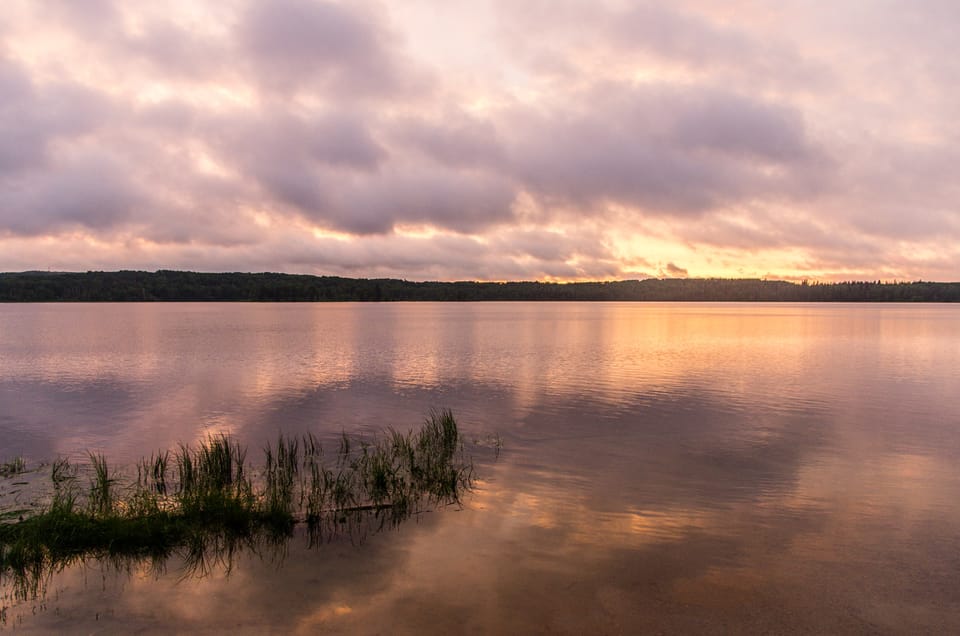EcoWest News, August 29, 2023

Welcome to EcoWest News, a weekly round-up of news and resources that you can put to use in addressing environmental issues and protecting the wild in your community.
Across the West
Step by step over 20 years, an Edmonton couple renovated their home to make it more energy efficient. They did such a good job it’s now net zero. [Green Energy Futures]
Edmonton’s utility company plans to build berms and walls around its water treatment plants to prevent flooding. The Edmonton River Valley Conservation Coalition proposes an alternate approach of allowing the landscape to absorb the water. [CBC]
Off-highway vehicle use in Alberta’s Bighorn Backcountry reduces water quality in the headwaters of the North Saskatchewan River, affecting human drinking water in Edmonton and across the Prairies. [Calgary Herald]
Alberta Parks is redesigning a popular campground to avoid human/bear conflict by minimizing the campground’s impact on an important wildlife corridor and moving berry crops outside of the camping area. [Rocky Mountain Outlook]
Established to protect polar bears’ winter denning grounds, Wapusk National Park in Manitoba also includes summer calving grounds for caribou and timber wolves. Unlike other national parks, it isn’t open to the public. [CBC]
Unable to daylight a buried creek, Vancouver is developing a multi-block rainway tracing its path. The rainway will store and clean water as well as providing a more natural environment for local residents. [The Tyee]
Around the World
Seven Ontario municipalities are working towards net zero ice rinks identifying major savings through cold-water ice resurfacing. [Green Municipal Fund]
The number of insect species at a small green patch in Melbourne increased sevenfold with the addition of native plants. [Yale Environment 360]
New reflective paints can cool your house or car when applied to the exterior and keep heat in when used inside your home. [Anthropocene]
Instead of targeting single-use plastics, we should encourage consumers to buy less and change society: “We can’t get away from single-use anything if we don’t have time to wash our dishes.” [The Walrus]
Communicating Differences
A move to restore Cowichan estuary habitat and prepare for sea-level rise has raised concerns about loss of farmland. A community newspaper attempts to provide answers that weren’t available at a public meeting. [The Discourse]
Long grass and weeds can be unpopular when cities try to increase biodiversity and benefit wildlife. “Making sure that people have their say has been a key part of the success of the UK’s largest urban rewilding project.” [The Guardian]
Resource Materials
A reading list of books about an alternative future, from active hope to sustainable hedonism. [Network of Wellbeing]
Reclaiming Health Activism in the Age of Climate Crisis is designed for health care professionals who want to harness their expertise and credibility as trusted voices to drive climate policy changes. [Health Care Without Harm]
Exploring Circular Strategies to Extend the Life of Existing Buildings provides a literature review and case studies, noting that deep retrofits can significantly reduce whole-life carbon emissions. [CSA Group]
Nature’s Wonders
“Being an environmentalist isn’t solely about being active and enraged and debating solutions to our civilization’s challenges. It also involves loving the thing you’re devoted to saving: nature, open space, living things, empathy, cooperation, inner peace.” [Columbia Insight]
Giraffes’ spots serve as camouflage. In addition, “the skin under the spots also has a system of blood vessels that allows giraffes to release heat through the center of each patch, providing a form of thermal regulation.” [The Guardian]
Photo credit: https://www.flickr.com/photos/apmckinlay/9122936694
EcoFriendly West informs and encourages initiatives that support Western Canada’s natural environment through its online publication and the Nature Companion website/app. Like us on Facebook, follow us on Twitter or Mastodon, or subscribe by email.

Member discussion